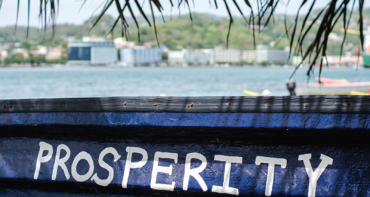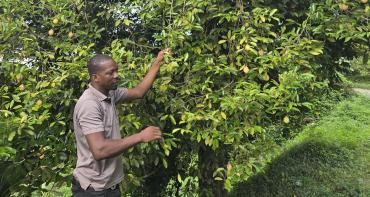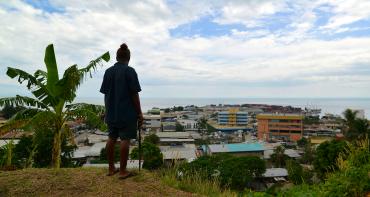Beyond the immediate human impact, violence against women and girls also costs billions of dollars a year, be it in lost work, damaged children, hospital fees or police time. The global cost of violence against women and girls was estimated at $1.5 trillion in 2016 – making everyone across the world at least $200 poorer that year.
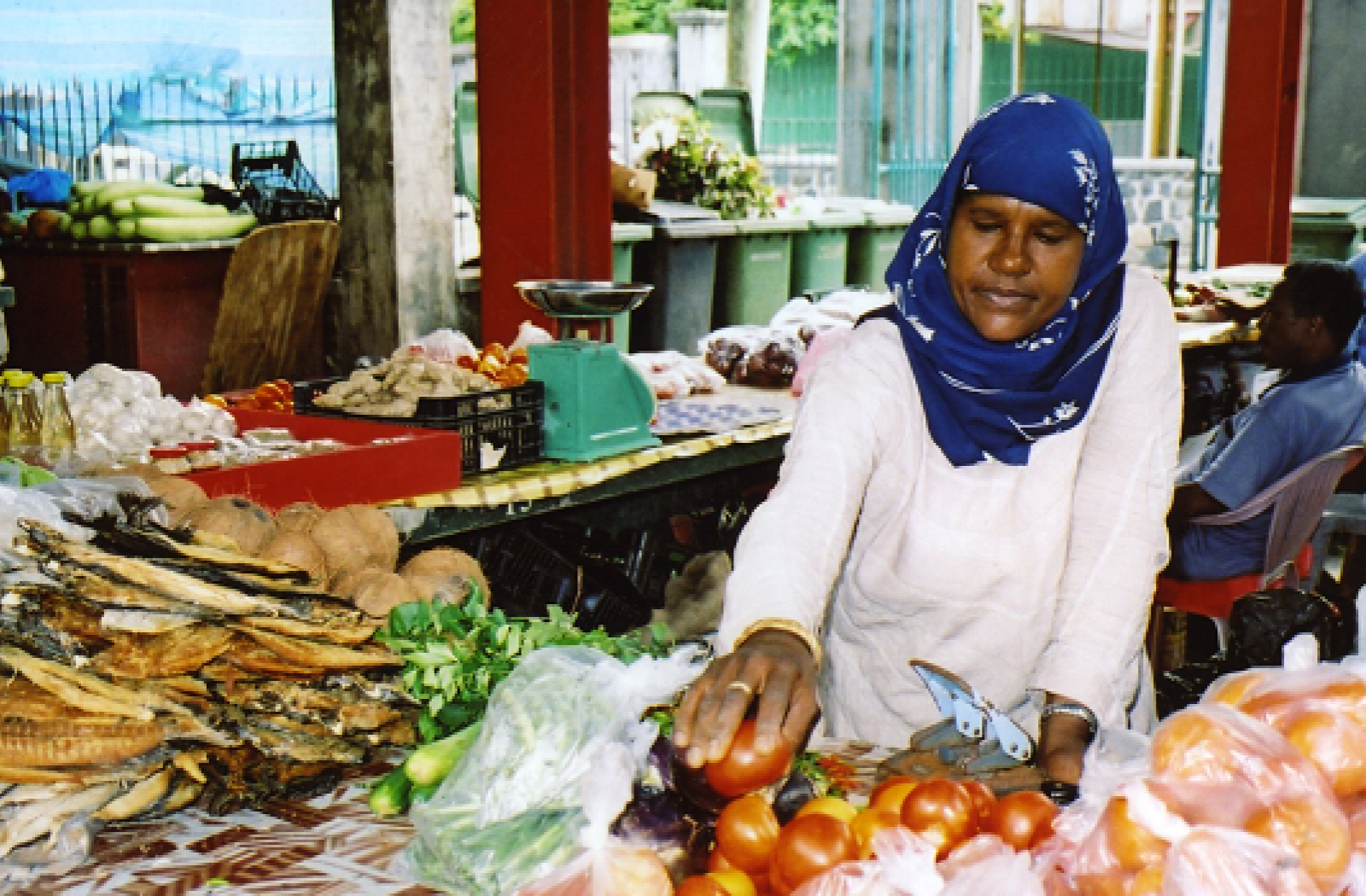
This blog is part of the Commonwealth’s ‘16 Days of Actions’ series, designed to showcase multi-disciplinary national solutions in addressing violence against women and girls. These proven solutions build on the collective experience of the 54 member countries – representing one-third of humanity – which can be replicated elsewhere to create a safer world for every woman and girl. Read the full series here.
This year marks the 25th anniversary of the Beijing Declaration and Platform for Action, a progressive agreement to end gender inequality. Ever since, the world has been working in solidarity to overcome gender inequality and secure equal rights for women.
We have seen encouraging progress in many areas, but violence against women and girls remains a challenge of pandemic proportions. It affects
Beyond the immediate human impact, violence against women and girls also costs billions of dollars a year, be it in lost work, damaged children, hospital fees or police time. The global cost of violence against women and girls(VAWG) was estimated at $1.5 trillion in 2016 – making everyone across the world at least $200 poorer that year.
This is a ‘violence tax’ which everyone in society pays when a woman or a girl is subjected to any kind of gender-based violence, making it everyone’s business.
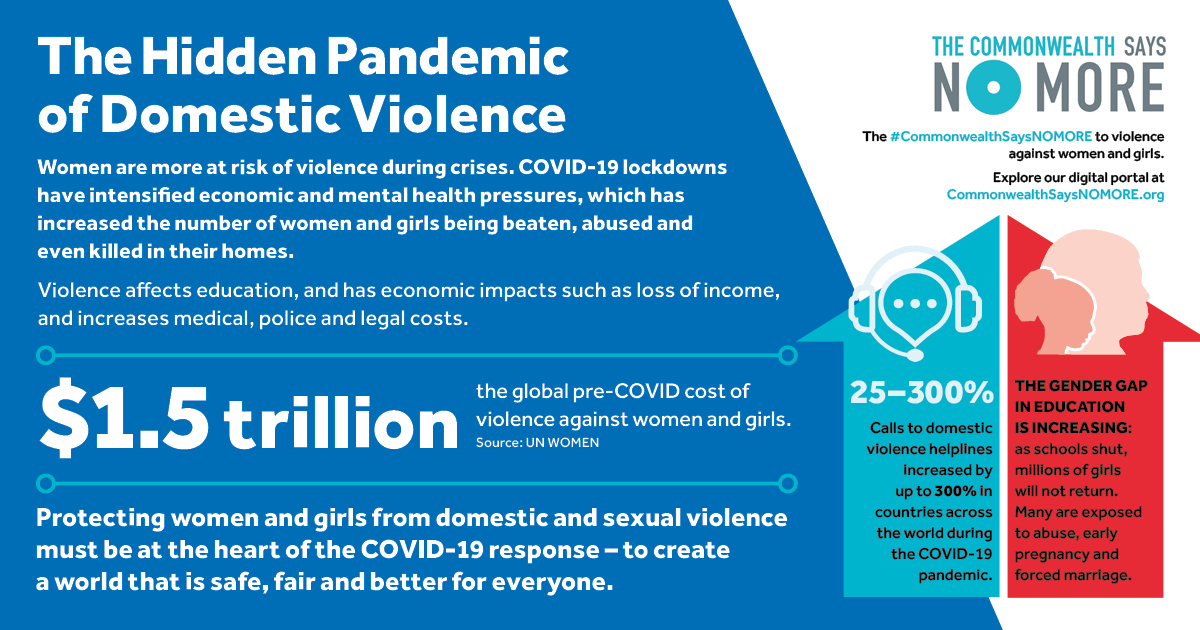
Economic modelling of violence against women and girls reveals the cost of intervening when the violence occurs, rather preventing it before it starts. The economic case is critical in increasing the willingness and ability of policymakers to act and direct more resources toward prevention.
However, many countries, particularly small and other developing states, do not have the expertise or the resources to conduct the economic costing exercise. To assist countries in this endeavour, the Commonwealth has developed a ground-breaking methodology and framework to help small states measure the impact violence against women and girls can have on the wider-economy in direct, indirect and induced costs.
This innovative approach has never been attempted before.
The power of data
About 58 per cent of women in Seychelles have experienced some form of gender-based violence at least once in their lifetime. However, up until 2018, Seychelles did not know how much money it was losing to this violence.
The Commonwealth successfully applied its methodology to the Seychelles economy in 2018, which revealed that the country loses over $65 million each year to violence against women and girls. This amount is one per cent higher than the country’s annual budget for education.
We found that the cost of violence is borne by everyone: individuals, families, communities, businesses and country as a whole. Women paid out of pocket expenses amounting to 2.33 per cent of the GDP, leading to reduced income, savings and spending power, which had a knock-on effect on the wider economy. Missed schools affected girls’ educational attainment potential valued at 0.3 per cent of the GDP.
The impact on health services was 0.6 per cent of the GDP, law enforcement 0.3 per cent, and social services 0.02 per cent. Communities covered the cost of many services, with volunteers working in shelters to help survivor overcome the trauma.
Similarly, the cost to the private sector was about 2 per cent of the GDP.
We believe the report gives the human story an easily understandable magnitude, where it frames the social discourse of public service provision in economic terms.
In addition, the report provides the basis for designing and implementing evidence-based, tailored policies and programmes to prevent and tackle the violence, while carrying out periodic reviews to evaluate and measure progress – ultimately saving lives.
Data can bring change
After the report was released, the Secretariat participated in a series of national consultations, which the Government of Seychelles with an aim to identify priorities to bring down the cases of violence againstwomen and girls. Through the Ministry of Family Affairs in Seychelles, we trained police officers as well as provided statistical training related to violence against women and girls and data collection, analysing and sharing.
In addition, based on a recommendation identified during the national consultations, we worked with the Office of the Attorney General and supported the government in drafting its new Domestic Violence Act, which was adopted in June 2020. It is heartening to see that the new critical legislation is in place, as it provides a robust legal response to protect women and girls from violence, punish abusers and will help to design and provide effective services to victims.
The data gathered, through this project, will also help Seychelles in its reporting on the Sustainable Development Goals (SDGs), in particular the SDG 5 onachieving gender equality and empowering all women and girls.
A blueprint for prevention
As countries recover from the economic aftermath of COVID-19, the Commonwealth’s methodology can be used to support decision-making around allocating scarce public resources to achieve maximum impact in ending violence against women and girls, and to free up resources necessary for our development priorities.
Identification of the impact of violence against women and girls in the findings, provide a strong economic argument to both governments and the private sector that investing in preventative and remedial action is cheaper than treating the symptoms, with widespread benefits at individual, family and societal levels.
Empirical studies suggest a high return to combating this problem. Every
These collaborative efforts send a clear signal that violence against women and girls is no longer tolerated, and gives hope to girls, women, families and communities across the Commonwealth.
We believe this should be an essential exercise for countries around the world to target policies and practices, because we simply cannot improve what we cannot measure.
This is not only necessary to save millions of dollars stemming from the cost of inaction and protecting women and girls from violence, but also to recover from the devastation triggered by the coronavirus pandemic – and to build forward better for every Commonwealth citizen.
The ‘16 Days of Actions’ blog series is part of the Commonwealth Says NO MORE campaign. Read the full series here, learn more about the Commonwealth’s work on ending violence against women and girls here – and join in the conversation on social media by using #CommonwealthSaysNOMORE.

